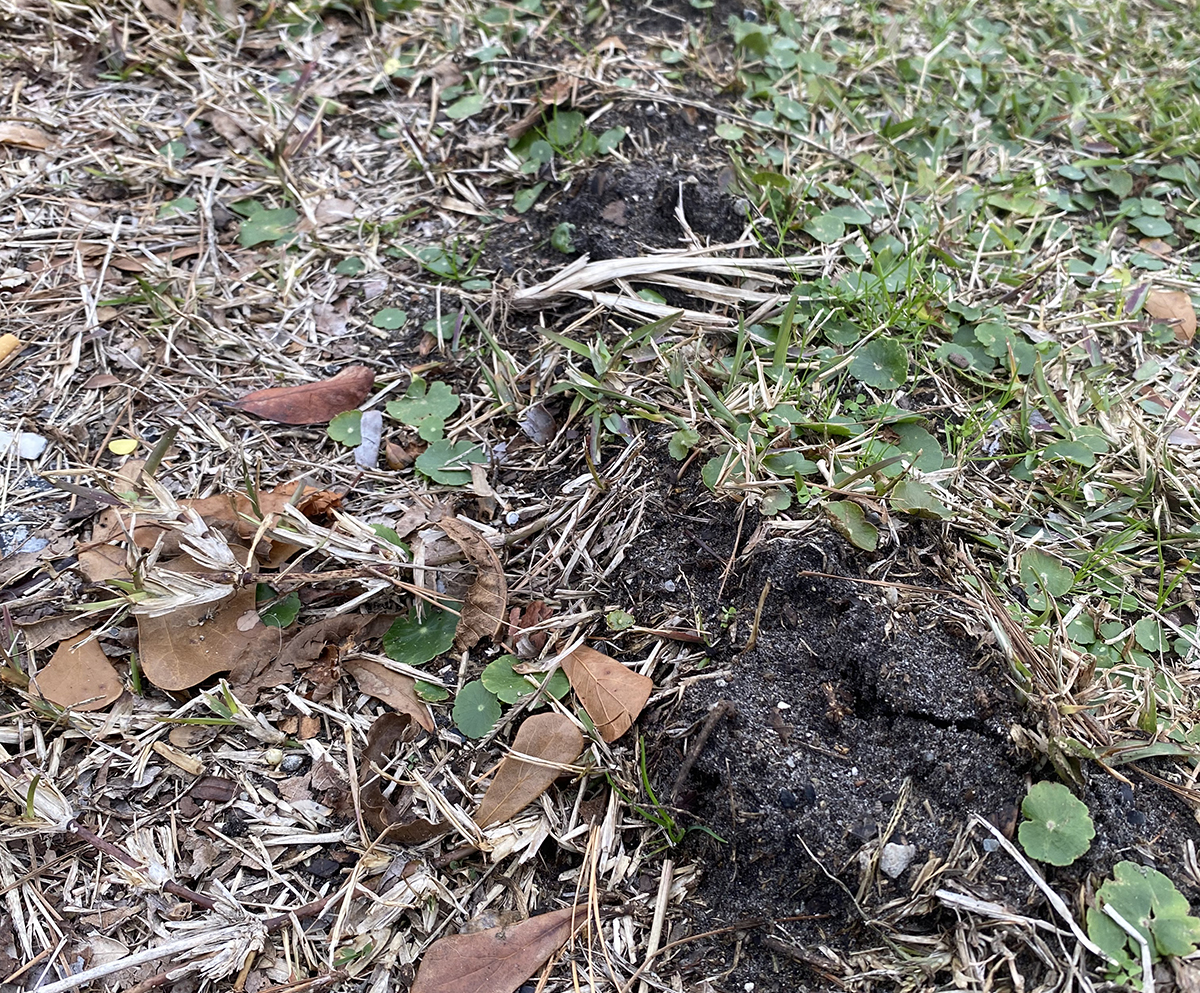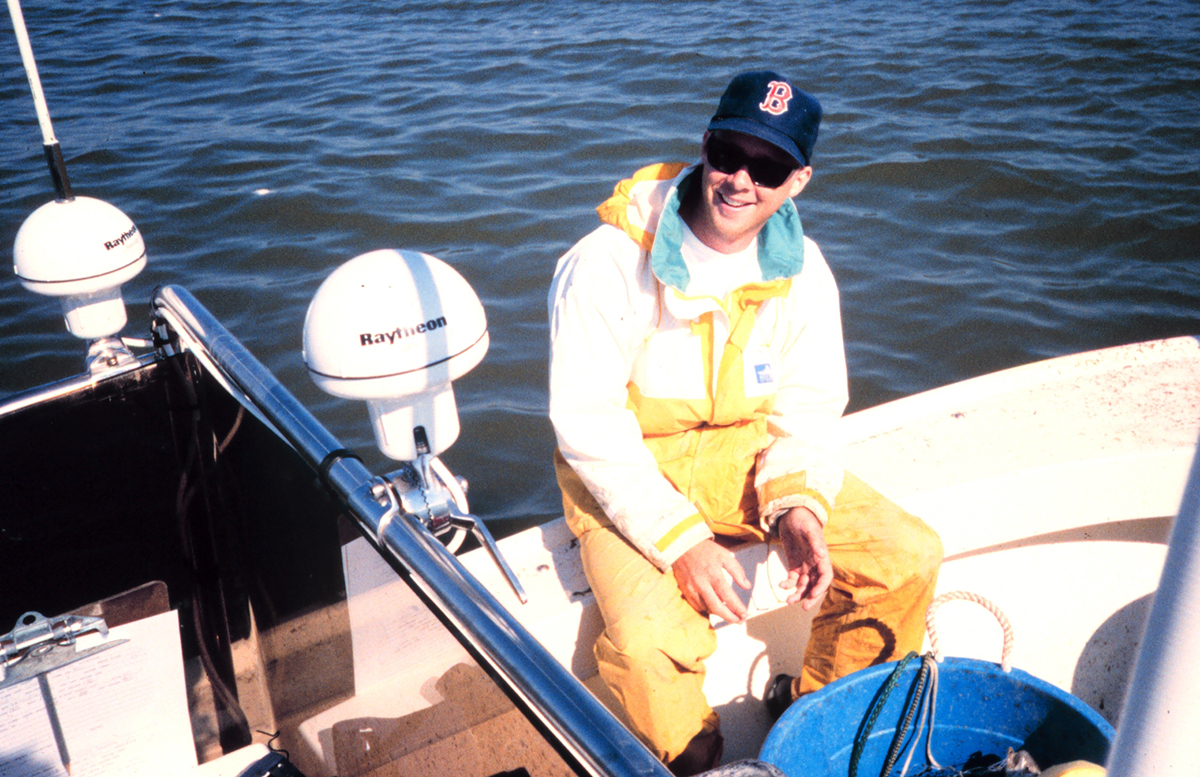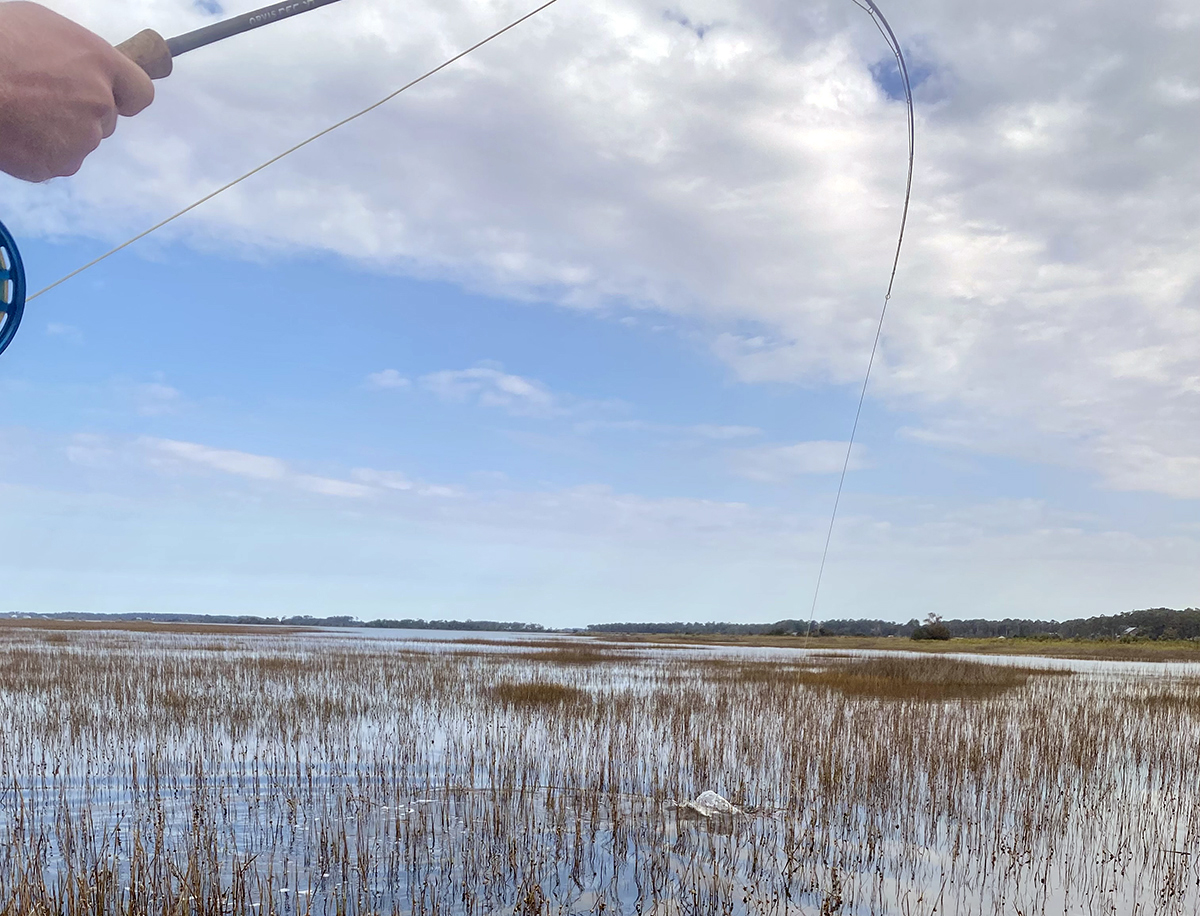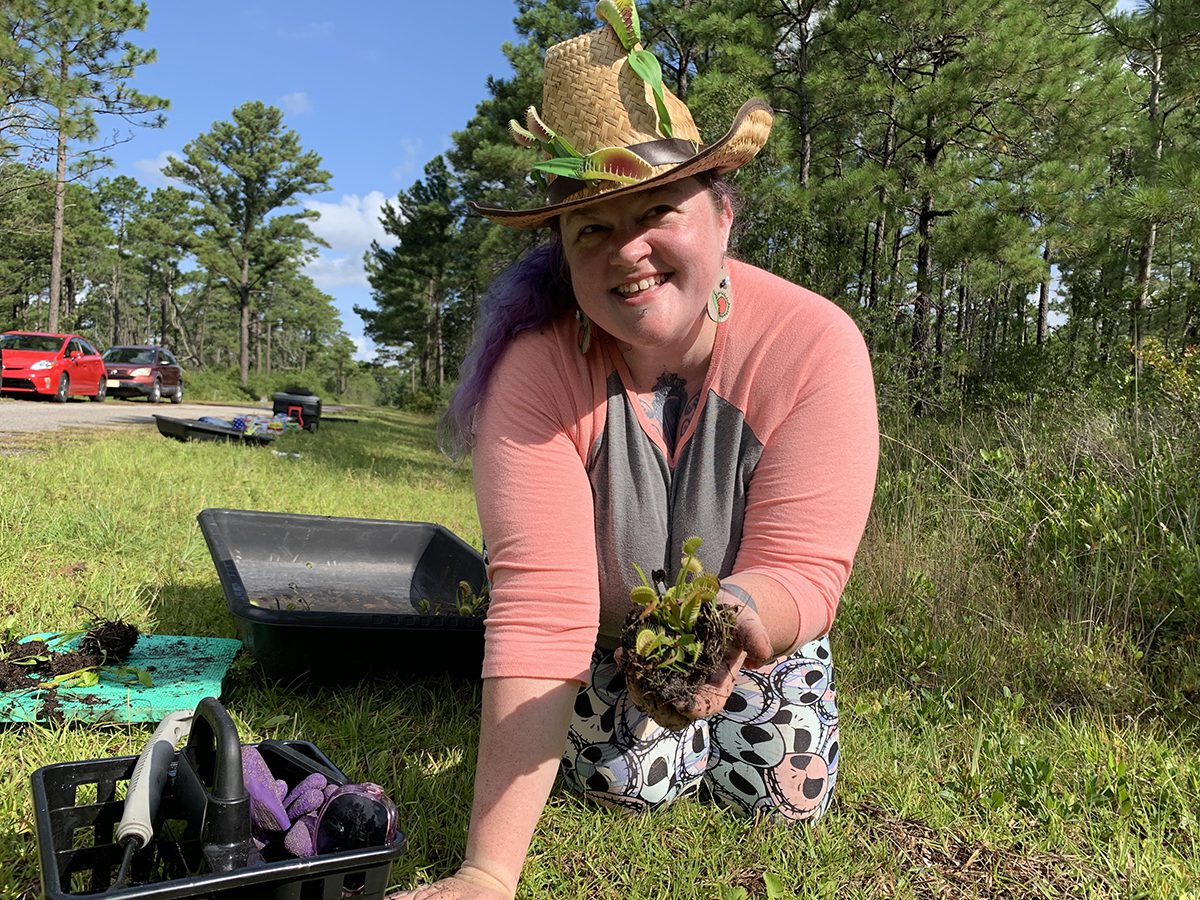
BOILING SPRING LAKES – The rain did not interrupt them as they squatted down, jabbing through thick brush and muddy soil with their trowels.
The sporadic, short-lived rain showers Monday morning in Boiling Spring Lakes were a welcome respite from the swelling morning temperatures that would reach 91 degrees by afternoon.
Supporter Spotlight
Rain nor clouds, heat nor shine will stop impending utility construction along the shallow ditch bed in which a group of volunteers fervently worked to dig up as many Venus flytraps as they could for replanting far from the roadside on which they’d sprouted by the hundreds.
Development and lack of burning, a management tool crucial to flytrap habitat, have created population decline of the rare, arguably bizarre yet totally fascinating, carnivorous plants that occur naturally only within a 75-mile radius around Wilmington.
In this small Brunswick County city roughly 8 miles northwest of Southport, Venus flytraps have migrated to ditches alongside roads that were built years ago to accommodate new housing.
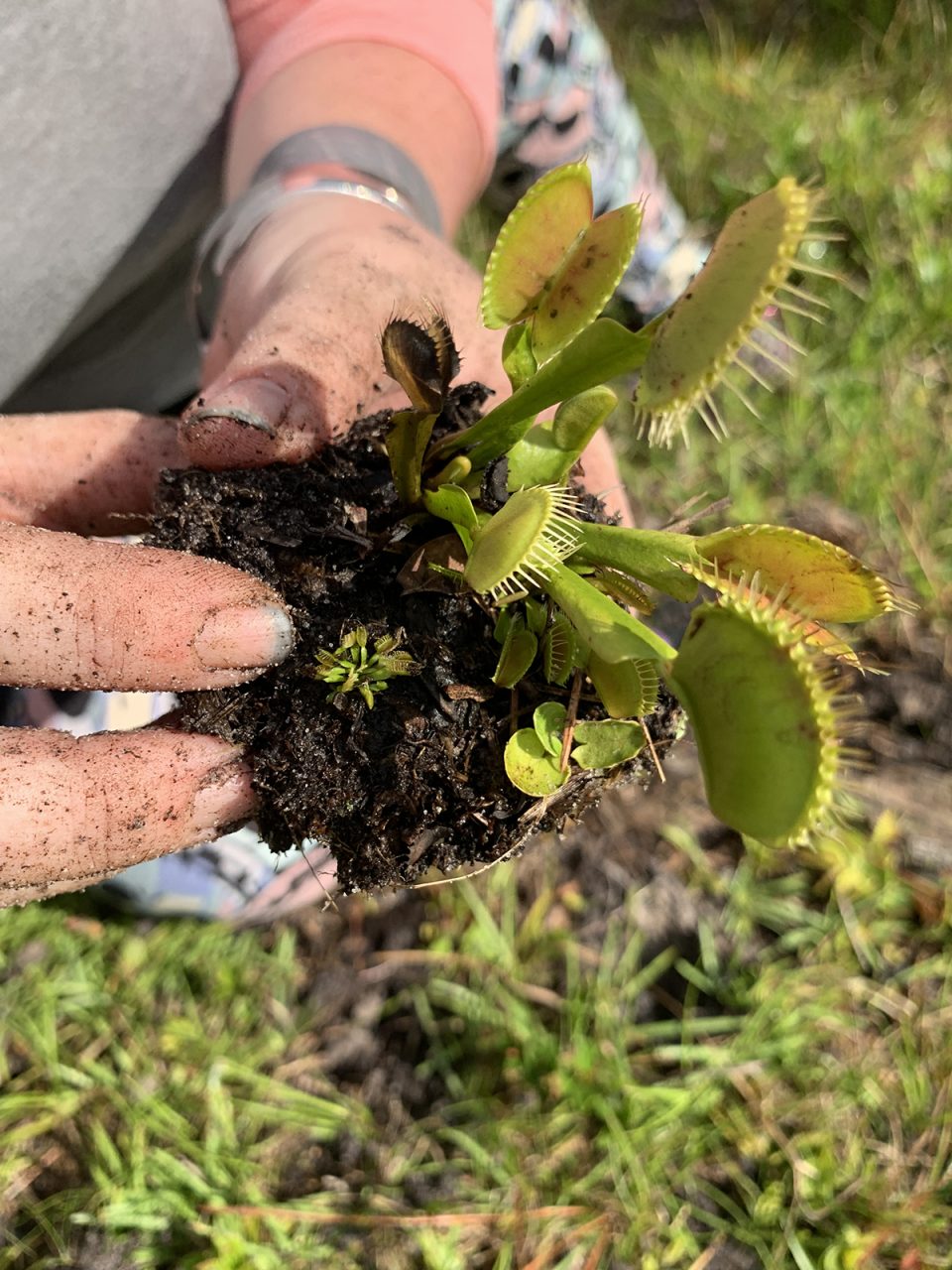
These spots offer the wet, open habitat flytraps require to grow and thrive, unlike the areas from which they migrated that are now overgrown by trees and shrubs that filter the sunlight the low-to-the-ground flytraps need.
Efforts to protect the flytraps’ roadside refuge have prompted the city to take over managing street-side mowing in areas that would otherwise be handled by the North Carolina Department of Transportation.
Supporter Spotlight
Now there’s interest to build houses on the vacant wooded lots where the plants once grew. Soon utility crews will begin digging up the areas to install water and sewer lines.
“We’re running out of time,” said Tyler Gramley, vice president of the North American Sarracenia Conservancy board of directors and volunteer. “Hopefully we’ll be able to get them all. The more you look the more there are. It’s great. It’s all great.”
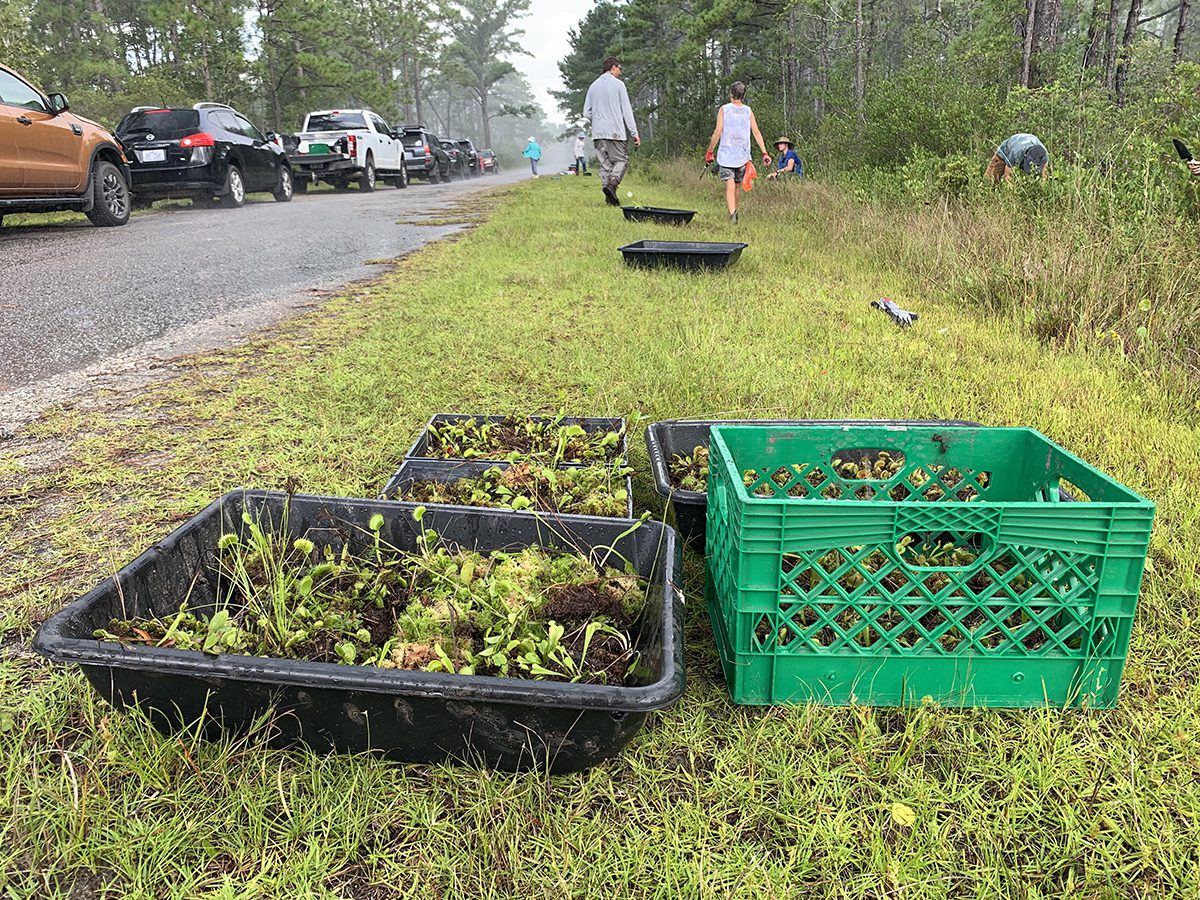
Gramley crouched down to assist others who were gingerly digging underneath flytraps and pulling them up, the plants’ roots concealed in clumps of soggy, black soil.
Many of the volunteers were repeat flytrap retrievers who’d shown up more than a week earlier to remove and replant plants along a different roadside.
The group of about 12 volunteers – young and old(er) – were city residents, conservationists, business owners and out-of-towners lending their time, knees and backs to give the plants considered in North Carolina a “species of concern” a chance at survival.
“We have the largest population (of Venus flytraps) per capita with humans living among them,” said Stephanie Bodmer, owner of The Boiling Spring Lakes Motel. “We live with them. We work to preserve them.”
Bodmer is the volunteer coordinator of the flytrap relocation effort, one spurred by Julie Moore, a woman whose life’s work has centered on habitat protection.
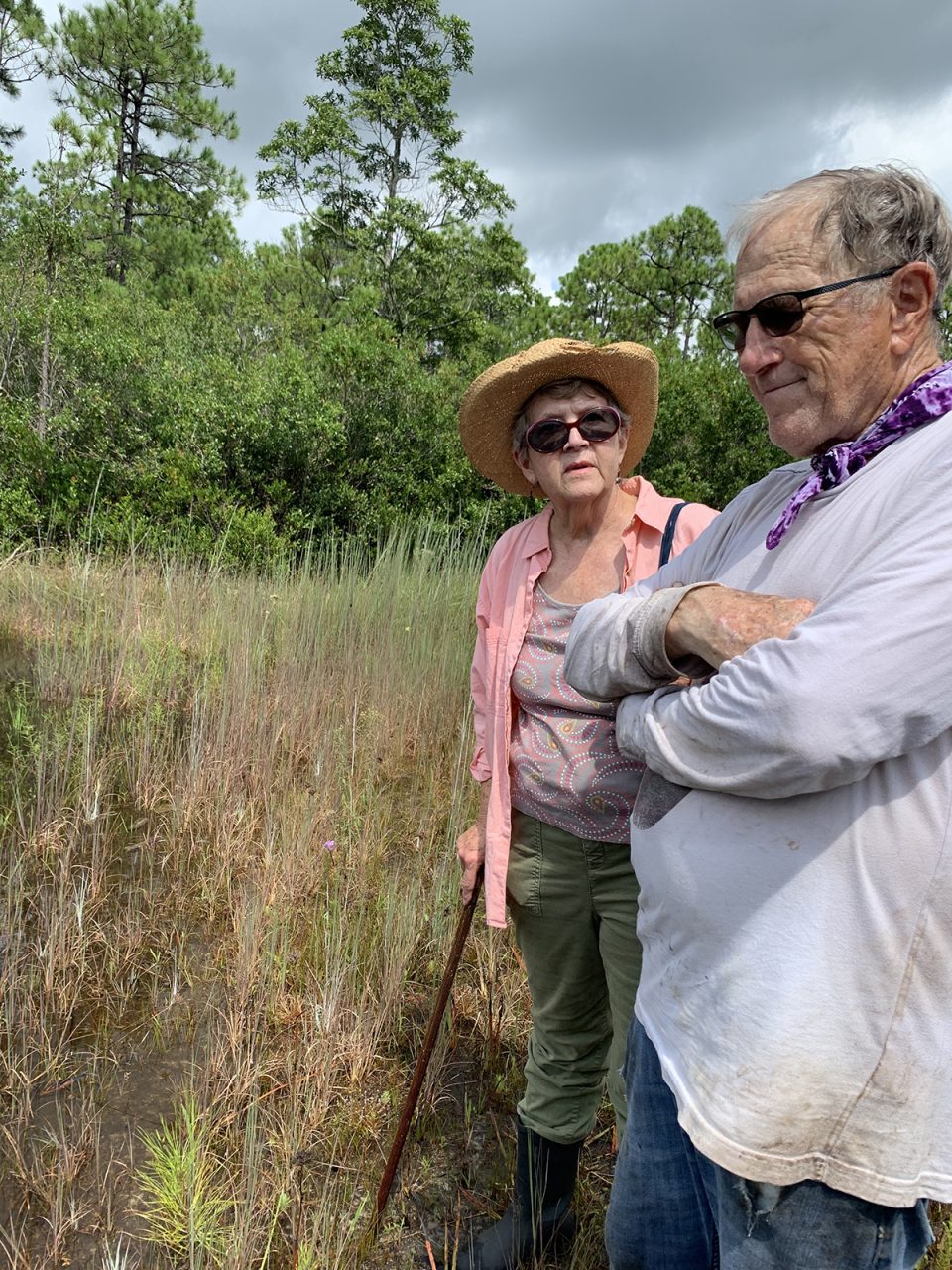
Moore, a retired endangered species biologist who started Venus Flytrap Champions to assist property owners and managers in the Carolinas in caring for flytrap populations, was running late Monday morning. An accident on Interstate 40 left her sitting in highway gridlock as she traveled from her home in Raleigh to Boiling Spring Lakes.
By the time she arrived at the site where volunteers had been scooping up flytraps by the dozens and carefully tucking them into plastic bins for moving, the volunteers were getting ready to head to the site where the plants are being relocated.
Leery of poachers — it is a felony to poach Venus flytraps — Moore asked Coastal Review not disclose the locations of where the flytraps are being removed and relocated. The plants are being replanted within town-owned and -managed land.
Venus flytraps lack threatened and endangered species protections despite their dwindling habitat. In fact, the U.S. Fish and Wildlife Service in late July issued a decision not to federally list Venus flytraps.
“There’s nothing else like them,” Moore said. “Taking them is protected, but the habitats are not. That’s the real problem.”
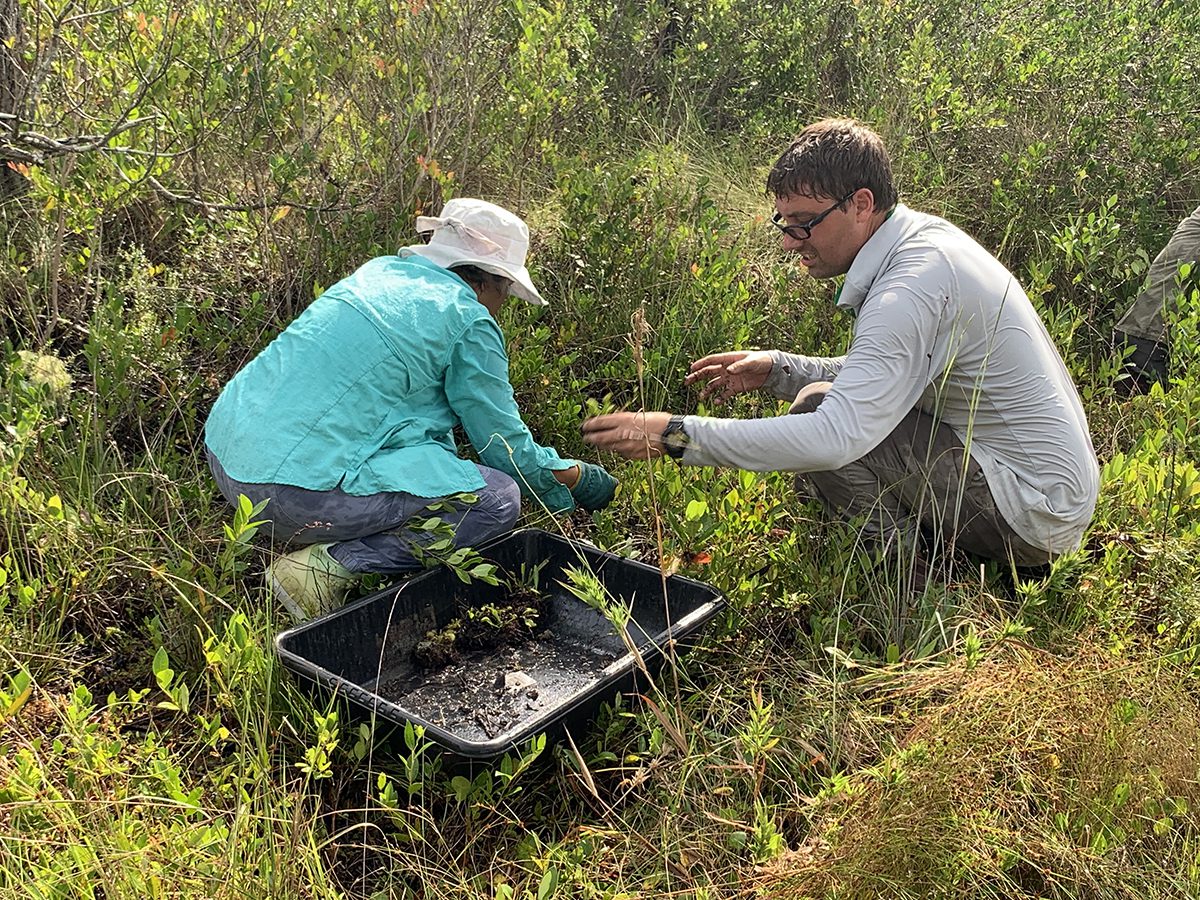
Venus flytraps live in open longleaf pine savannahs, habitat that has dwindled tremendously from an estimated 90 million acres spanning from Virginia to Florida and southwest to Texas to a little more than 3 million acres today.
Conservation groups have been working to preserve and restore longleaf pine forests. Ten years ago, The Nature Conservancy acquired more than 450 acres of longleaf pine forest in the Pinch Gut Ridge, an area crucial in maintaining the Green Swamp Preserve.
The preserve, which spans more than 17,000 acres just north of Supply on N.C. Highway 211, is famous for its carnivorous plants and orchids, the same species that grow in Boiling Spring Lakes, a city experiencing a population boom like much of Brunswick County east of U.S. 17.
When Boiling Spring Lakes resident Amber Townsend moved here 14 years ago she had no idea the plant that inspired the now-iconic Broadway-show-turned-movie, “Little Shop of Horrors,” flourished in the area.
It wasn’t until about four years ago when she visited a local farmers market that she found out the city is a “known hot spot,” according to Moore, for Venus flytraps.
Townsend enthusiastically talked about her intrigue of Venus flytraps as she sat on the ground carefully digging up every plant she spotted. She donned a straw hat decorated with a fake rendition of the carnivorous plant. The hat matched the Venus flytrap earrings she wore.
“I’ve really, really loved these plants and when I found out there’s a way to preserve them I wanted to help,” she said.
She was one of the return volunteers who, little more than a week earlier, relocated about 370 of the plants.
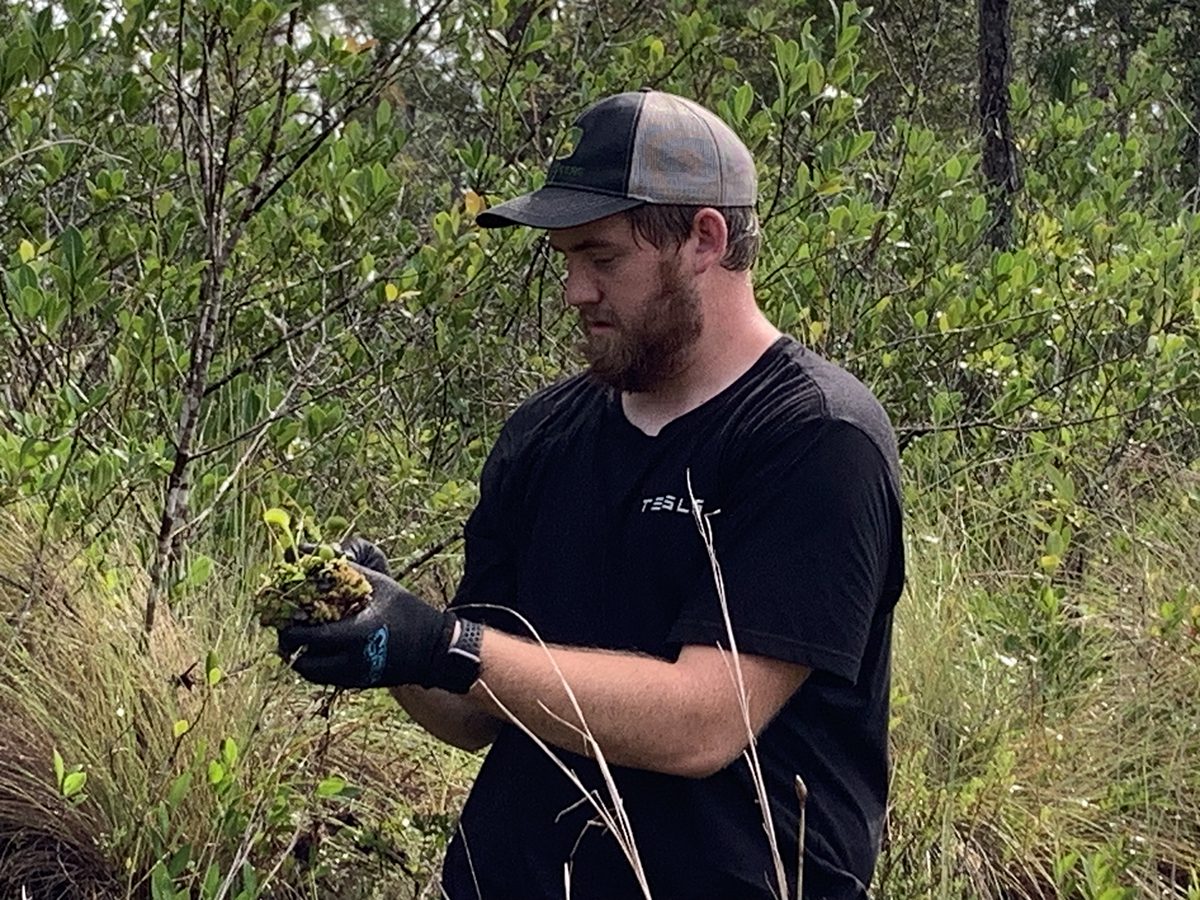
Volunteer Jared Lukavski made the drive from his home in Charlotte for a second time to volunteer.
“I fell in love with these plants a couple of years ago when I saw one at Walmart,” he said. “At the time I didn’t know they were native. It just almost defines nature to have a plant that wants to eat a bug.”
Boiling Spring Lakes resident Kathy Sykes has lived here for more than 30 years. She vividly recalled seeing a Venus flytrap for the first time during a horseback ride on her property.
“I couldn’t believe it,” she said. “This is one unique little area that we live in.”
Moore agreed.
“Boiling Spring Lakes is an oddity in that you can see Venus flytraps just driving down the road,” she said. “They’re just endlessly fascinating. We’ll be continuing to do this. We’re hoping to make the area where we’ve moved the flytraps an educational place.”




